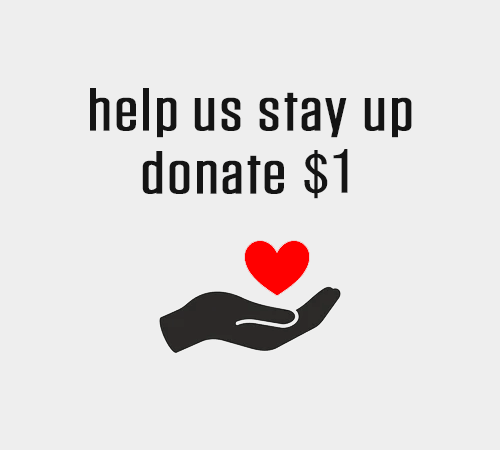Everyone feels hungry. A lot of us try to keep fit and keep an eye on our nutrition. In a perfect world our bodies would be finely-tuned machines that would let us know it’s time to eat as we begin to run low on energy and would then tell us to stop when their ‘tank’ was full.
Unfortunately, this is not how hunger and food works. Our relationship with food is really complicated and the only way we really have of making to work for us is to understand it better.
Why Do We Get Hungry?
We get hungry when our brain receives chemical messages from our digestive tract and our bloodstream that tell it that we are running low on resources. Two of these chemical messengers are the peptides GLP-1 and PYY which signal the brain that we are full and can now stop eating. Two more peptides play a critical role in our eating.
One is called ghrelin (pronounced "GREL-in") and it is popularly known as “the hunger hormone” and the other is called leptin. These work in exact opposite fashion. When the stomach is empty ghrelin is produced to make us feel hungry and seek out food. When the stomach is full, leptin is produced to stop us from eating any further.
Now all of this sounds like the machinery that starts us eating and stops us from overeating is fully in place but that is actually far from the truth.
Why Do We Overeat?
Although we are neurochemically wired to know when we need to eat and know when to stop, we overeat because that wiring is far from perfect and there are no failsafes. Some individuals, for instance, produce a lot lower levels of the peptides GLP-1 and PYY and in some others the production process of these peptides is slower than it should be which frequently leads to our continuing to eat past the point when we should have stopped.
The type of foods we eat also play a role. Foods rich in fat or high in sugar content, for instance, contain a lot more energy per gram than foods which are not as processed. Because the physiology of our bodies is ancient while our modern diet is very new, the body measures quantity rather than quality. If, for instance, it requires 250gr of grain to feel full (which contains, on average 278 Calories) it continues to need 250gr of steak which has a higher fat percentage and almost three times the number of calories, in order to feel full.
This tends to trick us into eating more calories than we need which are then stored by the body as fat to be used in case of emergency. The thing is that the moment our bodyfat reserves rise the body does not distinguish between them and muscle. It sees everything as “bodymass” that needs to be maintained. So as our body weight rises so do the body’s responses change, it becomes faster to cry “hungry” and slower to tell us “you are full” because it tries to get more energy to maintain its mass.
Studies have shown that people who become overweight also have greater resistance to leptin which means that their bodies continue to tell them they are hungry long after they have become full.
All of this becomes even more complicated by the types of foods we have access to. Our modern diets are rich in sugar and fats, both of which are relatively new to us which means our bodies have not yet adapted to them. We also tend to eat a lot of processed foods that are easy to digest, this means a lot less energy is consumed by the body as it processes them and a lot more energy is released in our system, when we eat them.
The combination of a fat-rich diet, easy access to sugar and foods that are highly processed and low in fiber affects our bodies chemically, frequently affecting leptin production and making us overeat without even realizing it. Someone, for instance, who is easting a bowl of brown rice or a plate of cooked spinach will feel full a lot faster than someone who has just had a high-fat beef burger and is now busy working through a pile of donuts.
While logically we would expect our body to tell us when it has had enough energy from each food source, this doesn’t happen because the programming necessary for it is still a work in progress.
How Can We Be Smarter With Our Eating?
Knowing how our bodies work with food allows us to be smarter in the way we use it. Instead of getting into diets and cycles of denial and binging it makes a lot more sense to do the clever thing and portion control foods that we know our body is not very good at dealing with.
Tubs of ice cream, piles of donuts and pancakes and massive chocolate cakes are easy examples of what not to do when indulging in sweets or enjoying foods that we know to be high in sugar and high in calories. Adding some fiber to the diet is not just good for the digestive tract but it also helps us control our appetite better.
If you want to have a smart eating strategy that really works for you consider the following:
- Do not combine high-sugar and high-fat foods, they short-circuit leptin production in your body and make you overeat.
- Eat any sweets or fatty foods you like as long as you do not make it a constant and remember to eat smaller portions of those.
- Eat more slowly, it allows your body time to produce the peptides that tell it when it is full.
- Add fiber to your diet, vegetables and fruit are great examples.
- Try and eat some foods that have low glycaemic index (GI) – nuts, vegetables and beans are good examples.
- If possible choose foods that are not as refined, such as brown bread and brown rice, as opposed to white alternatives.
- Pick the times you eat: it is better to eat a large meal when you have time to burn it off than to eat it at the end of the day when you will not be as active.
- Do not use food to improve your mood. Stress eating and comfort eating are the two easiest ways to short-circuit the hunger response and simply pile on weight.
- Avoid diets – they really do not help in the long term. They only lock your body in cycles of deprivation and binging.
- Try and earn your food. If you have a donut as a treat, try and walk an extra three or four miles, or spend an extra 20 minutes exercising.
With almost two billion people on the planet suffering from being overweight it is clear that the greatest weapon we have in staying trim and keeping in shape is our brain.








